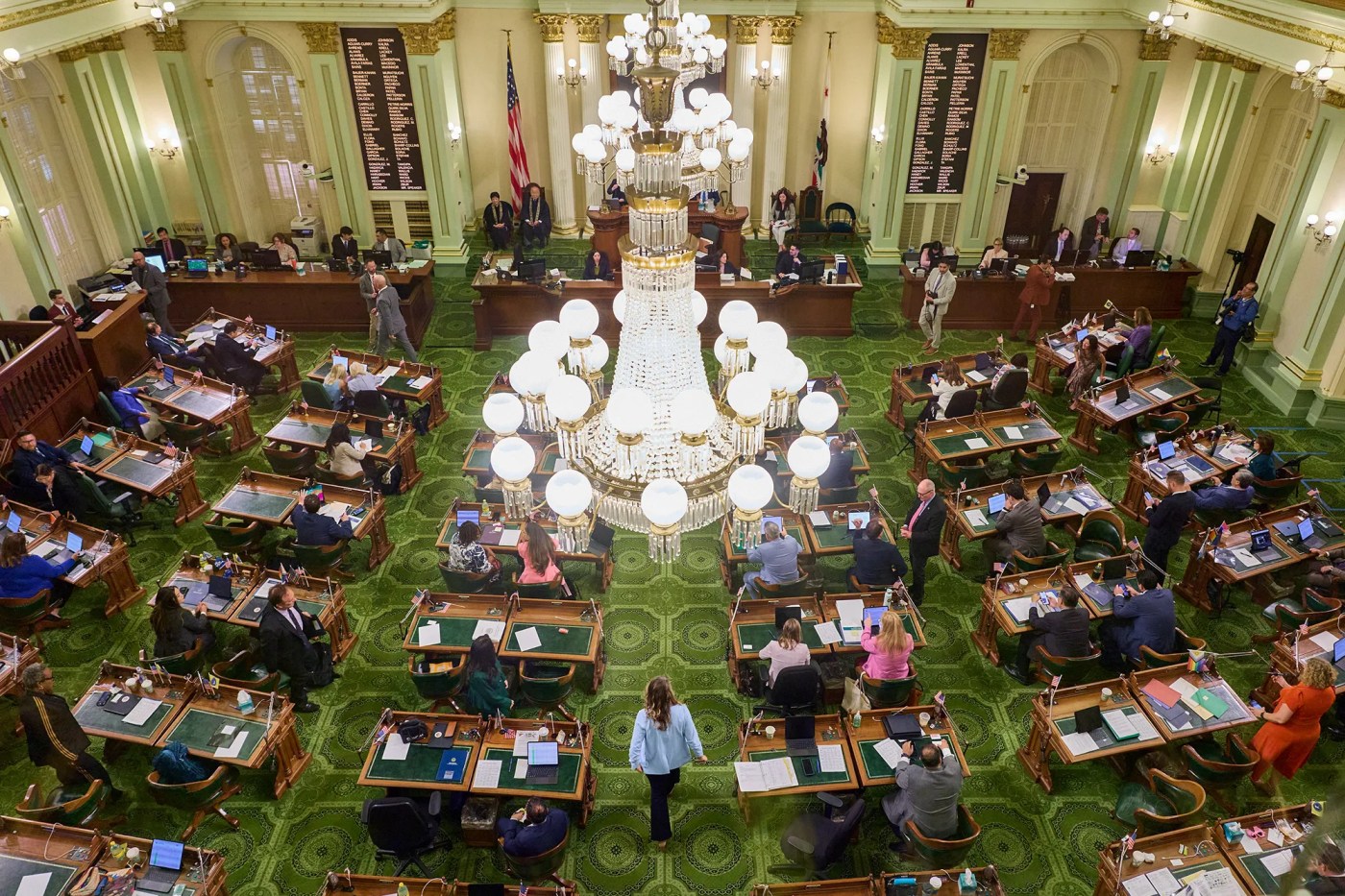California lawmakers are set to vote Monday on two controversial bills that would scale back the state’s signature environmental protection law, which a growing chorus of critics blame for blocking desperately needed housing and infrastructure projects across the state.
Bay Area Democrats, Assemblymember Buffy Wicks and state Sen. Scott Wiener, are driving the push for reform. One of the bills would exempt most apartment construction in urban areas from the California Environmental Quality Act, or CEQA, meaning such projects would no longer be subject to the state’s often lengthy and expensive environmental review process.
The other would extend CEQA exemptions to a host of other types of projects, including farmworker housing, high-speed rail stations, advanced manufacturing facilities and certain sewer systems.
If approved, Gov. Gavin Newsom, who has demanded that lawmakers reform the state’s environmental regulations, said he would sign them into law. The bills are tied to the state’s $321 billion budget proposal, which Newsom and lawmakers are expected to finalize on Monday.
Related Articles
Letters: Donald Trump’s war on trans education puts lives at risk
Letters: By electing Tordillos, S.J. District 3 rejects corporate influence
Fish restoration in Alameda Creek nears completion
How carbon capture works and the debate about whether it’s a future climate solution
Federal judge orders Trump administration to release EV charger funding in California and 13 other states
“It’s critical that we address the issue of the lack of supply and affordability of housing in the state of California,” Newsom said in a news conference Friday. “We’ve got to get out of our damn way. It’s code red for this state.”
Construction worker unions and environmentalists had fiercely opposed both bills. But a last-minute deal with the politically powerful unions over wage standards may have cleared the way for lawmakers to pass the housing bill.
The fate of the broader CEQA exemption bill may be less certain. Much of the language in the bill was written this week, and environmentalists accuse bill supporters of rushing the proposal through in backroom deals.
As a condition of approving the final state budget, Newsom struck an agreement with lawmakers that requires them to pass that bill before the new fiscal year starts on Tuesday. If they fail to do so, the entire budget could be invalidated.
That could set up a potential showdown ahead of the vote as the budget deadline rapidly approaches.
“The California Environment Quality Act is designed to provide transparency to the public about potentially harmful development in their communities, and the Governor and other state leaders are literally dismantling the law in the least transparent way possible,” Raquel Mason, senior legislative manager with the California Environmental Justice Alliance, said in a statement.
The bills come as some Democrats have grown increasingly frustrated with CEQA in recent years. They argue that what was initially a well-intended law has been weaponized by environmentalists, labor unions, neighborhood groups and others to sue or threaten litigation, extracting costly concessions from developers and stalling projects.
Ezra Klein, an influential New York Times columnist and self-described liberal, has taken particular aim at CEQA in his recent book, “Abundance,” becoming a prominent voice making the case for overhauling the law to solve the state’s housing shortage and complete ambitious infrastructure projects, such as the state’s long-delayed high-speed rail line.
Environmentalists and community groups say attacks on CEQA are unfounded, maintaining the law is essential to preserving natural habitats and protecting public health. It requires state and local agencies to study the impacts of large development proposals and ensure that plans address a range of potential impacts on everything from air quality and water supply to traffic and scenic views.
Housing advocates counter that the CEQA exemption bill for housing is smart environmental policy because it would encourage multifamily development, which uses proportionally less energy than single-family homes, and incentivize building apartments, condos and townhomes in job centers and near transit, in turn reducing commute times and vehicle emissions.
“California is finally aligning our environmental laws with our climate and housing goals,” Brian Hanlon, chief executive of the pro-housing group California YIMBY, said in a statement.
To get the bill over the finish line, housing advocates will likely need to win the support of the construction unions, which make enormous political contributions to lawmakers.
In recent years, unions have successfully sought to require developers seeking to take advantage of state laws to speed up homebuilding to pay workers “prevailing wages,” which in some parts of the state exceed $60 an hour before benefits. The unions contend such requirements are necessary to support an essential workforce, but developers say they often make it too costly to build.
Supporters of the CEQA bill pushed for a new wage framework for the proposed law, ultimately striking a deal with union leaders, housing advocates said. The new bill would only require developers using the CEQA exemption to pay prevailing wages on projects that are at least 85 feet tall — about seven stories — or 100% affordable developments. Other projects would have more flexibility in their pay scale.
Dan Dunmoyer, president of the California Building Industry Association, supports the bill and said the wage deal is workable.
“That seems to be a fair compromise,” he said.





